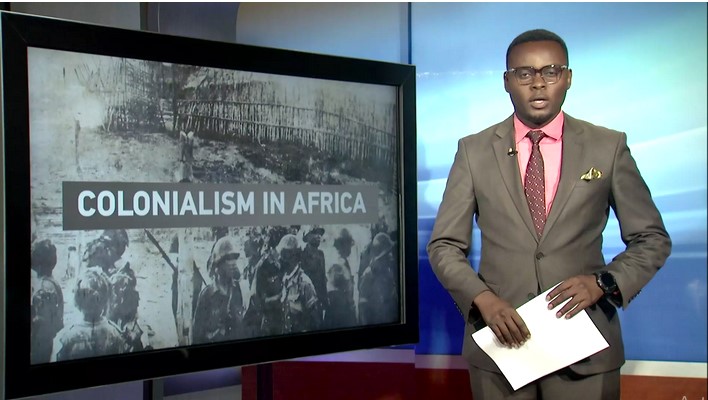NAIROBI, February 11th (AMSP/CGTN) – – The African Union will begin its annual summit in Addis Ababa this week. Heads of state, diplomats, and other international stakeholders will discuss and debate a range of issues vital to the future of the continent, including youth unemployment, climate change and the engines for sustainable economic growth. However, the headline topic is depicted through the summit’s theme: “Justice for Africa Through Reparations”.
European colonialism in Africa dates back to the 16th century…but it was stepped up significantly in the late 19th when the great powers of the time — including Britain, Germany, Portugal and France — virtually carved up the whole landmass amongst themselves.
The shift from the slave trade to the exploitation of Africa’s wealth of natural and human resources enabled the European powers to build their economies and expand their own wealth.
In the wake of World War II, African colonies stepped up their bids for independence, but these were often put down with brutal force by the colonial power.
The early 1960s brought a wave that gave independence to a host of African countries, but their economies were on the brink of collapse, with very few educated people to take them on.
Calls for reparations and apologies for what happened during these long decades have been growing in recent years, and this summit in Ethiopia is aimed to push them along further.
Kenya was colonized by the British. Its independence drive eventually sparked what the colonizers called the Mau Mau Rebellion, one which they put down with tremendous force and brutality. In 2013, the UK government agreed to pay £19.9 million to settle claims of more than 5,000 Kenyans who were tortured during colonial rule. Discussions regarding the broader implications of reparations continue but with mixed responses from various UK entities.
Namibia was colonized by the Germans, who carried out a brutal genocide of the Herero and Nama people in the early 1900s. In 2021, Germany acknowledged its role in the genocide and pledged 1.1 billion dollars for reconciliation projects over 30 years, although many Namibians feel this falls short of actual reparations.
The Democratic Republic of Congo was colonized by Belgians — a period which is notorious for horrific exploitation and violence, particularly under King Leopold I. In 2020, King Philippe expressed regret for Belgium’s colonial abuses. However, formal reparations have not been established, and discussions continue among civil society groups.
Algeria was colonized by the French since the 1830s and is notable for arguably the most deadly war of independence on the continent. French President Emmanuel Macron has made gestures towards addressing the colonial past, including acknowledging state violence during the Algerian war. Calls for reparations are ongoing but have not resulted in formal compensation.
South Africa was colonized by the Dutch and the British. The Netherlands has engaged in some formal apologies but direct reparations remain a contentious issue.
amsp/cgtn-abp
CGTN

